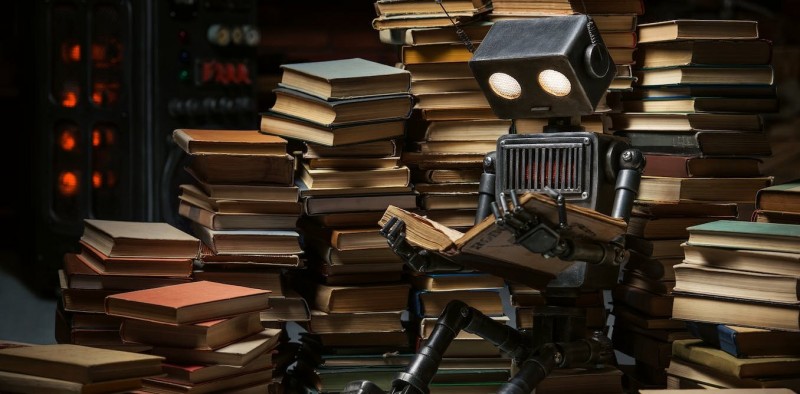
New Delhi:- On Monday morning, many writers found out that their books were put into a big collection of data without their permission. This project was done by the cloud word processor Shaxpir. They looked at over 27,000 books and studied them to see how lively and expressive their language was. Several writers, such as Maureen Johnson and Celeste Ng, criticized Prosecraft for using their books to train a model without their permission. Even books that were recently published have already been put online.
After facing criticism online, Benji Smith, the creator of Prosecraft, decided to remove the website. The website had been around since 2017.
"I have spent a lot of time working on this project. I cleaned up and added notes to the text, and also organized and made small changes," Smith wrote. But in the meantime, 'AI' became popular. And the coming of AI has been spoiled by early examples that let anyone make fake versions of artists without any effort, taking away their control over their own creative work.
Also Read:- Preserving Your Engine: Step-by-Step Guide to Reset Oil Life on Honda Accord
Smith's Prosecraft was not a tool that could create new content, but the authors were concerned it might have the ability to do so because Smith had gathered a huge collection of words from published books by searching the internet.
Prosecraft used two paragraphs from a book to compare how active or descriptive they were. They ranked the books based on how lively, lengthy, or uneventful they were.
"If you have a profession as a writer, it can be very frustrating. This is because writing with style is different from writing a serious document for a company which requires using active voice or similar techniques," explained author Ilana Masad. "Style is a way of expressing oneself and it is unique to each individual. "
Smith did not answer many requests to comment, but he explained more about what he meant in his blog post.
Also Read:- Is Your Motorola Phone Eligible for Unlocking? Find Out Now!
Smith said that because he was only sharing basic information and small parts of the books, he thought he was following the Fair Use rules which don't need permission from the original author. Some writers realized that the parts of their books published on Prosecraft revealed important plot details, which made readers even more annoyed.
Authors are still very frustrated even though Smith said sorry. AI tools are making things difficult for artists and writers. Once they decide to stop using one database, they discover that their efforts have been used to teach another AI model, and this process continues.
"It's usually the usual thing for these websites and projects to do what they're doing first and then hope that nobody notices. But when people eventually do notice, they either disappear or become defensive," explained Masad.
AI that creates content and the technology that allows people to publish their own books have combined to create a situation where scammy activities are very common. Amazon has received a lot of travel guides and children's books created by AI that are not very good. But tools like ChatGPT are trained using the entire internet. This means that authors who write travel or children's books may be unintentionally copied.
Also Read:- Capture Your Motorola Moments: How to Take Screenshots Like a Pro
In a recent blog post called "I’d Rather See My Books Get Pirated Than This," author Jane Friedman explained that someone on Amazon is pretending to be her and selling books under her name. These books seem to be written by AI.
Even though Friedman managed to have the fake books taken down from her Goodreads page, she says that Amazon will only remove the books from sale if she has her name trademarked.
Amazon didn't say anything before it was published. "I believe no writer truly thinks that AI will destroy books because that's not how literature functions. Also, I have found that ChatGPT's 'stories' are extremely dull and lack any form of genuine creativity or writing skills," Masad expressed.
However, she is concerned that publishers may believe otherwise and potentially replace marketing and publicity teams with AI-generated promotional content. "It feels really terrible," she said.
Also Read:- Tesla has now its new CFO placed after Zachary sets off
On Monday, a lot of authors found out that their books and creative work had been shared on a website without their permission. The owner of the website took it down, but this has greatly affected the authors' ability to create and the hard work they put into their work for many years.